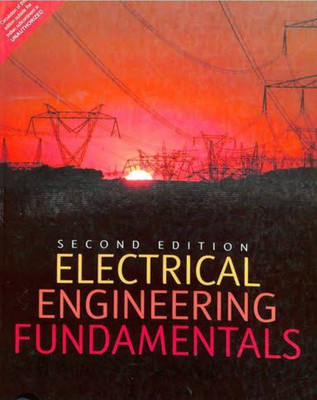Electrical Engineering Fundamentals(English, Paperback, Rauf S. Bobby)
Quick Overview
Product Price Comparison
Many, in their quest for knowledge in engineering, find typical textbooks intimidating. Perhaps due to an extensive amount of physics theory, an overwhelming barrage of math, and not enough practical application of the engineering principles, laws, and equations. Therein lies the difference between this text and those voluminous and daunting conventional university engineering textbooks. This text leads the reader into more complex and abstract content after explaining the electrical engineering concepts and principles in an easy to understand fashion, supported by analogies borrowed from day-to-day examples and other engineering disciplines. Many complex electrical engineering concepts, for example, power factor, are examined from multiple perspectives, aided by diagrams, illustrations, and examples that the reader can easily relate to. Throughout this book, the reader will gain a clear and strong grasp of electrical engineering fundamentals, and a better understanding of electrical engineering terms, concepts, principles, laws, analytical techniques, solution strategies, and computational techniques. The reader will also develop the ability to communicate with professional electrical engineers, controls engineers, and electricians on their "wavelength" with greater confidence. Study of this book can help develop skills and preparation necessary for succeeding in the electrical engineering portion of various certification and licensure exams, including Fundamentals of Engineering (FE), Professional Engineering (PE), Certified Energy Manager (CEM), and many other trade certification tests. This text can serve as a compact and simplified electrical engineering desk reference. This book provides a brief introduction to the NEC (R), the Arc-Flash Code, and a better understanding of electrical energy and associated cost. If you need to gain a better understanding of myriad battery alternatives available in the market, their strengths and weaknesses, and how batteries compare with capacitors as energy storage devices, this book can be a starting point. This book is ideal for engineers, engineering students, facility managers, engineering managers, program/project managers, and other executives who do not possess a current working knowledge of electrical engineering. Because of the simple explanations, analogies, and practical examples employed by the author, this book serves as an excellent learning tool for non-engineers, technical writers, attorneys, electrical sales professionals, energy professionals, electrical equipment procurement agents, construction managers, facility managers, and maintenance managers.


